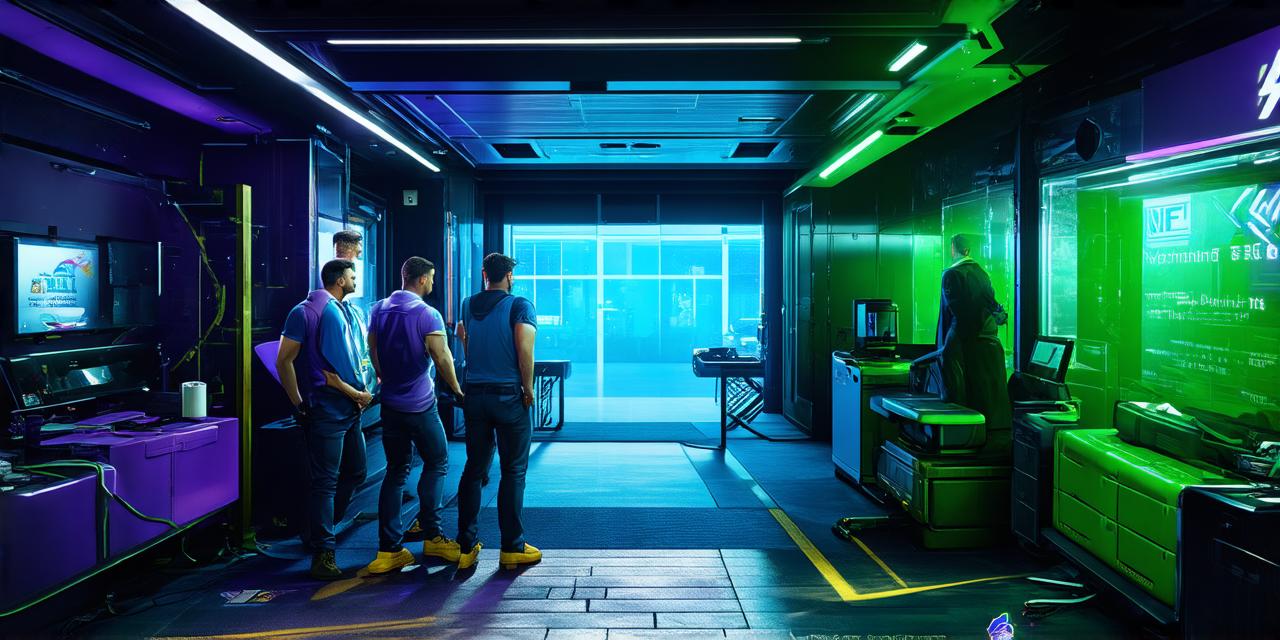Getting into the video game industry can be challenging, but it is also an exciting and rewarding career path for those who have the skills and passion.

Challenges in the Video Game Industry
High Competition
The video game industry is highly competitive, with thousands of talented game developers vying for a limited number of jobs. To stand out and get noticed, you need to have exceptional skills and expertise.
Lack of Experience
Many job listings in the video game industry require experience working on software development projects. If you don’t have this experience, it can be difficult to find a job or secure funding for your projects. However, self-taught programmers who have built successful games using online resources and tutorials may still have a chance.
Educational Requirements
To get into the video game industry, you typically need a degree in computer science or a related field, along with some experience working on software development projects. However, there are online resources and boot camps that can help you develop the skills and knowledge needed to succeed in the industry.
Economic Conditions
The video game industry is not immune to economic conditions such as recessions and market fluctuations. If the economy is struggling, it can be difficult for new game developers to find jobs or secure funding for their projects. However, during these times, there may also be opportunities for innovative ideas that capture players’ attention.
Ageism
Ageism is a prevalent problem in the video game industry, and it can be challenging for older game developers to get hired or promoted. However, this trend is changing as more companies recognize the value of experienced developers who bring a different perspective and knowledge to the table.
Opportunities in the Video Game Industry
Growing Demand
The demand for video games is growing rapidly, with millions of people around the world playing games on various platforms. This presents an opportunity for game developers who can create engaging and entertaining content that appeals to a wide audience.
Technological Advancements
Advances in technology have opened up new possibilities for game development, such as virtual reality and augmented reality games. Game developers who are skilled in these technologies may be in high demand.
Diversification of Games
There is an increasing trend towards diversifying the types of games available, including educational games, health and wellness games, and social games. Game developers who specialize in these areas may have a competitive advantage.
Case Studies and Personal Experiences
Shigeru Miyamoto
Shigeru Miyamoto is a legendary game developer who co-founded Nintendo, the company behind popular video game franchises such as Mario and The Legend of Zelda. Miyamoto started in the industry with a background in art but was able to apply his creative skills to game design and development. His success in the industry is attributed to his ability to create fun and engaging games that appeal to players of all ages.
Emily Greene Balch
Emily Greene Balch is an artist and programmer who founded her own game development studio, Mildred Game Studio. She started in the industry with a background in art but was able to develop her skills in programming and game design through online resources and tutorials. Her success in the industry is attributed to her ability to combine art and technology in innovative ways, resulting in games that are both visually stunning and engaging.
Self-Taught Programmers
Self-taught programmers who have built successful games using online resources and tutorials may still have a chance in the video game industry. For example, Markus Persson, the creator of Minecraft, began his career as a self-taught programmer and went on to create one of the most popular games of all time.
Strategies for Getting into the Video Game Industry
Develop Your Skills and Knowledge
To succeed in the video game industry, you need to have exceptional skills and knowledge. This means investing time and effort into learning new technologies, programming languages, and game development techniques. There are many online resources and tutorials available that can help you develop your skills and prepare for a career in the industry.
Build a Portfolio of Your Work
Your portfolio is your most valuable asset when trying to get a job in the video game industry. It should showcase your best work, including games or projects that you have developed yourself. This will give potential employers an idea of your skills and expertise.
Networking is Key
Networking is crucial when trying to break into the video game industry. Attend industry events and conferences, join online forums and communities, and connect with other game developers who can offer advice and support.
Stay Up-to-Date with Industry Trends
The video game industry is constantly evolving, with new technologies and trends emerging all the time. It’s essential to stay up-to-date with these changes to remain competitive in the job market. Follow industry leaders on social media, read industry publications, and attend conferences and workshops to learn about the latest developments in gaming.
Conclusion
Getting into the video game industry can be challenging, but it is also an exciting and rewarding career path for those who have the skills and passion. With hard work, dedication, and a little bit of luck, you too can break into this competitive and dynamic field.



